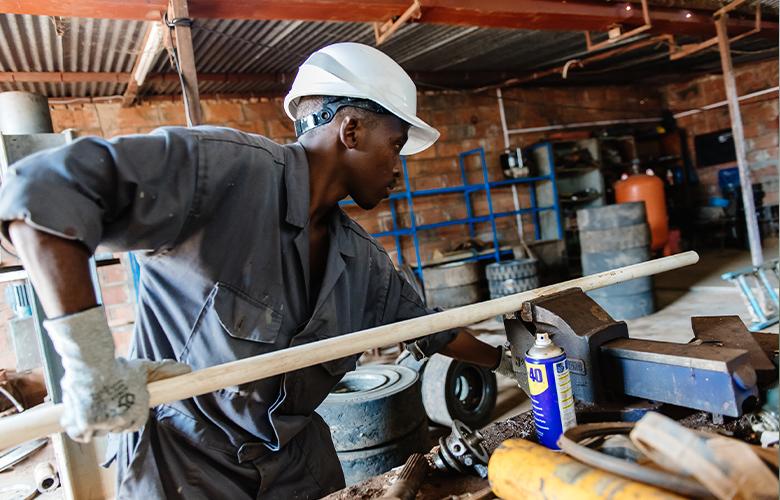
Recently, I participated in an EDC learning session with youth workforce development project staff from countries including Senegal, Rwanda, Djibouti, Democratic Republic of the Congo (DRC), Niger, Lebanon, Philippines, and Thailand. Each project team shared the social and economic impacts of the COVID-19 pandemic on their project communities, training programs, and delivery of services to beneficiaries. It was a timely meeting coming before the International Day of the Eradication of Poverty.
Unlike previous years, when positive gains in poverty alleviation decreased the rates of those living in extreme poverty, this year will have the largest increase since 1990. The World Bank estimates that between 88 million and 114 million people have now been thrown into extreme poverty due to the pandemic. Now, more than ever, linking youth to either self-employment or employment opportunities is necessary for economies of all size and scale.
Inspired by my colleagues, here are my three takeaways for supporting youth who are at risk of extreme poverty.
1. While program implementation may be susceptible to economic shutdowns and delayed re-openings as part of social distancing mandates, we can and must advocate for policy change. For example:
- We can involve youth in policy dialogue and decision-making related to the pandemic’s impact on their lives and find entry points for youth to support their communities.
- In Rwanda, EDC is supporting mayoral offices and public-private youth development initiatives to collect data on humanitarian responses, listen to the voice of youth, and respond accordingly.
2. Resource allocations from donors and local government are critical to providing safety nets for youth. Some examples include integrating cash- and food-based assistance into workforce development programming, offering tenant protection, and extending the duration of loan repayments.
3. It is important that we improve the delivery of training and services to youth by:
- Delivering alternative education and training solutions through radio programming, online instruction, and mobile learning to reach youth remotely by adapting existing material
- Re-focusing training curriculum and job intermediation services toward new or emerging sectors, such as agricultural-based sectors, to create new employment opportunities
- Integrating health messaging on COVID-19 prevention into training
- Offering blended coaching and mentoring through platforms such as Facebook lessons and WhatsApp discussions
2020 has been unprecedented in so many ways. But it also offers opportunities to share best practices and innovative ideas to reach those most in need. Even in the midst of a pandemic, we can take steps to move forward to a day free of extreme poverty.
| Ricardo Perez-Pineda is an international project coordinator at EDC. Perez-Pineda supports Youth Workforce Development projects in the Philippines and coordinates communication efforts across all international youth workforce projects. |

Add new comment